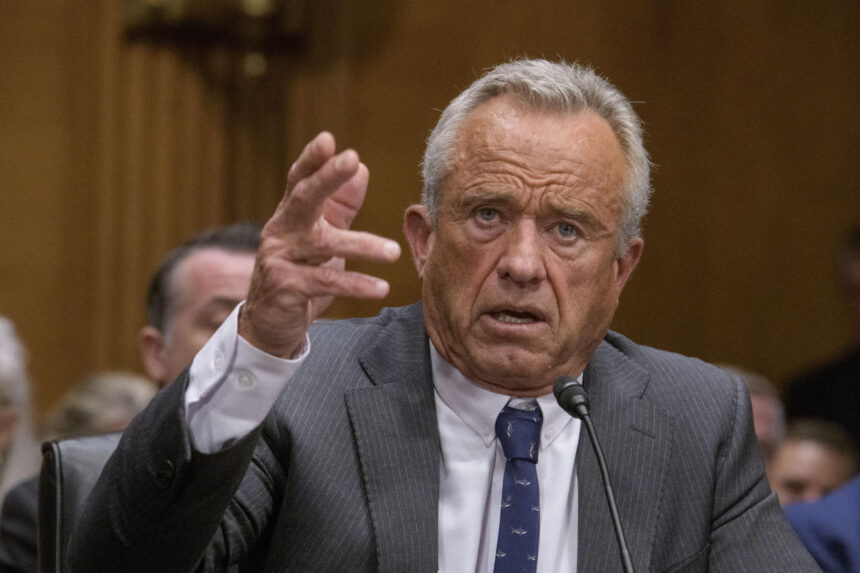Introduction
Antidepressants have been a cornerstone of mental health treatment for decades, helping millions manage conditions like depression, anxiety, and mood disorders. However, recent developments in policy, treatment advancements, and patient experiences have reignited conversations about their safety, effectiveness, and future in healthcare.
From regulatory scrutiny to groundbreaking treatment options and growing concerns over withdrawal effects, this article delves into the latest news, scientific breakthroughs, and expert opinions on antidepressants.
We will explore:
- The new government review on SSRIs initiated by Robert F. Kennedy Jr.
- The FDA’s expanded approval of Spravato for treatment-resistant depression.
- Patient experiences with antidepressant withdrawal and discontinuation challenges.
- A major recall of duloxetine (Cymbalta) capsules due to safety concerns.
- What the future holds for mental health treatments beyond traditional antidepressants.
With scientific insights, expert opinions, and real-world data, this article will provide a comprehensive analysis of the current state of antidepressant medications.
1. Government Scrutiny of SSRIs: What It Means for Patients
The appointment of Robert F. Kennedy Jr. as the U.S. Secretary of Health and Human Services (HHS) has sparked controversy in the medical community, as he calls for a comprehensive review of selective serotonin reuptake inhibitors (SSRIs)—one of the most widely prescribed classes of antidepressants.
Why Are SSRIs Under Review?
Kennedy has raised concerns about:
- The long-term safety of SSRIs.
- The potential risks of dependence and withdrawal symptoms.
- The possible link between antidepressants and violent behaviors, a claim that remains scientifically debated.
SSRIs, including fluoxetine (Prozac), sertraline (Zoloft), and escitalopram (Lexapro), are among the most commonly prescribed psychiatric drugs. Studies show that while they are effective for many, about one-third of patients do not respond adequately.
Kennedy’s stance has sparked reactions from psychiatrists, pharmaceutical companies, and patient advocacy groups, with many questioning whether this review could lead to stricter regulations on antidepressant prescriptions.
How This Impacts Patients
If the review leads to policy changes, patients may experience:
✔ Stricter prescribing guidelines for SSRIs.
✔ Increased monitoring for side effects and long-term use risks.
✔ More emphasis on alternative treatments, such as therapy and holistic interventions.
While some medical professionals support the review as a precautionary step, others argue that it could create unnecessary fear and stigma around antidepressant use.
2. FDA Expands Approval of Spravato (Esketamine) for Treatment-Resistant Depression
In a major development, the U.S. Food and Drug Administration (FDA) has expanded the approval of Spravato (esketamine) nasal spray, allowing it to be used as a standalone therapy for adults with treatment-resistant depression.
Why Is This a Game-Changer?
Unlike traditional antidepressants, which can take weeks to show effects, Spravato works within hours, offering rapid relief for individuals with severe depression.
💡 How Spravato Works:
- Esketamine targets the glutamate system in the brain rather than serotonin, offering a novel approach to treating depression.
- Patients typically inhale the medication under medical supervision at certified treatment centers.
Who Can Benefit?
✔ Individuals who have not responded to at least two antidepressants.
✔ Patients with major depressive disorder (MDD) with suicidal thoughts.
✔ Those seeking a faster alternative to traditional SSRIs.
Concerns About Esketamine Treatment
Despite its benefits, some experts caution that Spravato carries potential risks, including:
❗ Dissociation and hallucinations in some users.
❗ High cost and limited insurance coverage.
❗ Long-term safety data is still being evaluated.
The FDA’s expanded approval marks a significant shift in depression treatment, potentially leading to wider adoption of ketamine-based therapies.
3. The Growing Concern Over Antidepressant Withdrawal
A recent study highlights the challenges faced by long-term antidepressant users who attempt to discontinue their medications.
Key Findings of the Study
📌 A large percentage of patients experience withdrawal symptoms, including:
- Brain zaps
- Dizziness
- Anxiety
- Insomnia
📌 Many users struggle to find proper guidance on tapering off safely.
📌 Some individuals are misdiagnosed with “relapse” instead of withdrawal symptoms, leading to unnecessary continuation of medication.
How to Safely Discontinue Antidepressants
Experts recommend a gradual tapering approach:
✔ Work with a psychiatrist to develop a personalized tapering plan.
✔ Reduce the dosage slowly over weeks or months.
✔ Monitor for withdrawal symptoms and adjust accordingly.
📢 Important: Stopping antidepressants suddenly can cause severe withdrawal effects. Always consult a doctor before making changes.
4. Duloxetine (Cymbalta) Recall Raises Safety Concerns
The FDA recently recalled over 7,000 bottles of duloxetine (Cymbalta) delayed-release capsules, a commonly prescribed SNRI (serotonin-norepinephrine reuptake inhibitor).
Why Was It Recalled?
❌ Potential contamination and stability issues were identified.
❌ Manufacturing defects could impact medication effectiveness.
❌ Patients have been advised to check their medication batch numbers and consult their doctors.
This recall underscores the importance of quality control in pharmaceutical manufacturing, especially for psychiatric medications that millions rely on daily.
5. The Future of Depression Treatment Beyond Antidepressants
With SSRIs under scrutiny and new therapies emerging, researchers are exploring alternative treatments that could revolutionize depression management.
Emerging Alternatives to Traditional Antidepressants
1️⃣ Psychedelic-Assisted Therapy
- Studies show psilocybin (magic mushrooms) may offer long-lasting antidepressant effects.
- The FDA is currently reviewing its potential for medical use.
2️⃣ Deep Brain Stimulation (DBS)
- A promising option for severe depression that does not respond to medication.
3️⃣ Gut Health & Microbiome Research
- Scientists are exploring how gut bacteria influence mental health, leading to probiotic-based treatments.
4️⃣ Digital Therapy & AI-Driven Mental Health Support
- AI-based therapy apps are helping patients manage symptoms without medication.
These innovations could provide new hope for patients who do not respond to traditional antidepressants.
Conclusion: What This Means for Patients & the Future of Mental Health
The landscape of antidepressants is rapidly evolving, with policy changes, new treatment approvals, and increased scrutiny on medication safety.
Key Takeaways
✔ Robert F. Kennedy Jr.’s SSRI review could lead to stricter regulations.
✔ Spravato (esketamine) is emerging as a powerful alternative for treatment-resistant depression.
✔ Antidepressant withdrawal needs more awareness and better management.
✔ The recent Cymbalta recall raises questions about pharmaceutical oversight.
✔ The future of depression treatment may include psychedelics, AI, and microbiome therapy.
Final Thought: What Should You Do?
💡 If you or someone you know is taking antidepressants, stay informed about the latest research and treatment options. Always consult a medical professional before making changes to your medication.
🚀 For the latest updates on mental health and treatments, follow our news portal at XYZ BUZZ!






